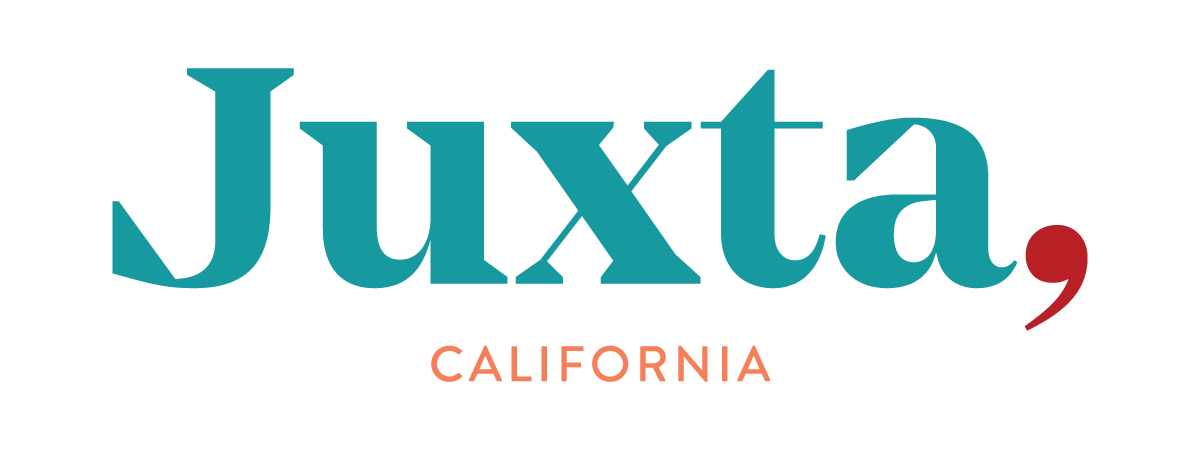Co-Dependence, Unhealthy Love, & Relationship Addiction
Sound Familiar?
Luke and Margo have been living together for 4 years. When they moved in together, Margo admitted she had $10,000 in credit card debt and promised that she would start paying it off, and as a trade-off, Luke offered to take care of the bills for a while on his own. Two years later, Margo still hasn’t paid off her debt and has continued to accrue even more credit card debt. Understandably, Luke is infuriated when the subject comes up, and tends to blame Margo for all of their financial woes. Margo feels badly about her debt, but also doesn’t trust Luke as he’s cheated on her in the past, another issue that ultimately gets interwoven into the money conversation. She requires that he text her every hour while he is out in order to make sure he isn’t getting carried away. Between the controlling on Margo’s ending and the blaming on Luke’s, they aren’t sure if their relationship will last much longer. But, every time they try to break it off they both end up feeling insecure and promising to make it better this time around. Neither of them has any concrete idea how to do that.
Evangeline’s daughter Janice is 16 and has recently started hanging out with students at her school that do harder drugs. Evangeline believes that in order to be a good mother she has to take care of her daughter’s every need, especially since she didn’t have that herself growing up. Whenever Evangeline gets a call from the school that Janice didn’t show up, she lies on her behalf to protect Janice from getting in trouble. Evangeline also knows Janice is involved in drug activity, but is afraid if she intervenes that “they won’t be friends anymore.” It’s a mess.
Martin and his mother have always been very close. Growing up his mother referred to him as “her little prince.” Now, Martin is thinking about proposing to his girlfriend of 5 years. When he told his mother about the idea she started crying and said that she was “so disappointed couldn’t believe he was abandoning her.” Martin tried to console his mother and promise her that nothing would change, but she became passive aggressive and wouldn’t speak to him. Martin’s friend Joe told him that his mother’s response wasn’t normal, but Martin said this is just how his mom shows love. He is also thinking about postponing the engagement a little longer until his mother can adjust to the idea more.
 History of the Concept of Co-Dependence
History of the Concept of Co-Dependence
Co-Dependence is a term used to describe a pattern in relationships where one individual is overly dominant or destructive while the other person is more of a caretaker and passive. Perhaps obviously, it is somewhat common in relational pairings for one partner to be more dominant and the other to be more passive, particularly in relationships where the phrase “opposites attract” applies. However, in co-dependent relationships things are taken to an extreme, and a pattern emerges where one individual is generally and specifically dysfunctionally dominant/abusive, and the other individual is generally and specifically dysfunctionally and passive/caretaking, tending to nearly unilaterally prioritizing the needs and wants of the other individual. However, its important to note that co-dependent individuals may get into relationships with other persons who are themselves codependent, and thus, they may flip-flop between between the abusive and care-taking/passive roles, and there is often a good deal of guilt, shame, or pressure to always fulfill roles in order to not lose the approval or actual/perceived intimacy that exists in co-dependent relationships.
Ultimately, co-dependence is tricky for a few reasons.
- Who Me?? When people are in a co-dependent relationship it may be difficult for them to recognize it at first. This is typically because they believe that what they are doing is “helpful” in some way or “necessary” in order for the relationship to stay intact or for the situation not to completely fall apart. And in fact, there may be an extent to which this is true — they may in fact be keeping things together — but this of course begs the question, “What is it that’s being kept together?” Answer: often a very unhealthy and exploitative relationship.
- Victim/Victimizer Blurriness: Co-dependent persons who play the excessively caretaking role often tend to see themselves as exclusively the victim, and in fact, they have usually been very victimized by the dominant/abusive partner. However, one hallmark of truly co-dependent relationships is that the passive/caretaking partner tends to have a need to control and/or change the abusive individual. Again, as with above, that control or change is something that we might label as emotionally positive — for example, a co-dependent spouse of a drug addicted partner might have the need to change or control the drug-addicted partner’s use of substances, which is necessarily an emotionally positive desire in that it would be in the drug addicted partner’s best interest to stop using. However, the dynamic is what is often seen as primarily dysfunctional from the perspective of co-dependence — i.e., the fact that the passive/caretaking partner is attempting to control or change their spouse is itself a central part of the overall dysfunction of their relationship.
 History of the Concept of Co-Dependence
History of the Concept of Co-Dependence
It may help in understanding the phenomenon of co-dependence to know that it was a term originally used to explain the behavior of individuals who lived with someone suffering from alcohol addiction — the addicted person was referred to as “alcohol dependent,” while the other person (usually a spouse, parent, or child) was referred to as “co-dependent.” Now, it is widely recognized that this dynamic can emerge in many other scenarios as well, and the term co-dependent has enlarged its definition to include them.
But How Do Relationships Become Co-Dependent?
More often then not we learn how to function in relationship from what was modeled for us as children. Whether the rules and norms of how to act were spoken directly or not we were taught different ways to engage and set boundaries (loose, rigid, etc.). We also learned which roles got our needs met the most (i.e. being more dominant or taking on the role of a caregiver).
Here are some examples of family norms that could foster co-dependency:
- Repressing emotions – The “shove it under the rug” syndrome
- Little physical contact – Minimal hugs or affection unless used as manipulation
- Overly critical – Nothing is ever right and flaws are constantly picked on
- Very little praise – Even when things are going well, the negative holds the primary focus
- Hypocrisy – For example, getting in trouble for drinking when the parent gets drunk every night
- Expectations that are unrealistic – Expecting things to look perfectly with little room for human error (i.e. Straight A’s or else)
- Ignoring conflict – Pretending like nothing is wrong or using passive aggression
- Poor boundaries – Expecting people to drop anything for them, taking “no” as an insult
- Abuse or neglect – Physical, emotional, sexual, financial or otherwise
- Lack of a caregiver’s presence – Either through loss, divorce, overworking, incarceration, or simply not being around
- Family member experiencing addiction – Substance use/abuse, pornography addiction, gambling, etc.
 What does a healthy relationship look like and how can I create one?
What does a healthy relationship look like and how can I create one?
- Co-dependent relationships require us to more or less constantly move our boundaries in order to receive affirmation of our self-worth. Healthy relationships involve giving of ourselves from a position of healthy boundaries which create a sense of stability in us and implicitly give us dignity and a sense that we matter (because we care for ourselves).
- Co-dependent relationships require us to more or less continually surrender control and work off mandates, often on both sides (excessively demanding *and* excessive passivity). Healthy relationships respect that everyone has limitations and partners learn to influence (vs. control) one another when possible and called for, and to protect and care for one another (vs. resent, belittle, or otherwise abuse) when a person is unable to bend.
- Co-dependent relationships often thrive on secrecy and half-truths from both partners. Healthy relationships advocate for sharing openly and honestly about what is happening, be that a positive or conflictual topic. (NOTE: This may naturally entail some difficulty, so getting help managing honest discussions may be key.)
- Co-dependent relationships form their own kind of addictive cycle under the constant threat of abandonment and/or mistreatment. Healthy relationships advocate for time and freedom without being foolish or naive — this gives partners enough time to develop a framework of trust within reasonable boundaries, and encourages everyone to be responsible for their own feelings, thoughts, and actions.
I think I’m in a co-dependent relationship! What should I know or do?
- Being honest with yourself is the first step. Realizing that you’ve become co-dependent you’re in relationship with (even if your intentions are good) is the first step to creating a healthier relationship with both yourself and your loved one. Having a willingness to explore the entire package is key.
- Chances are that you are currently and/or historically have been legimitately hurt. Co-dependent persons are likely to have been mistreated in some very critical ways (even if they can’t see the ways their behavior has contributed). If that’s you, consider that you may be the person who most needs to fully acknowledge that fact. You may need to look at how your mistreatment informs your present behavior, as well as the need to get help as a result.
- Relationships are complicated. Like most things involving people, relationships are complex. Your victimization is not your fault, and yet, your co-dependence does bind you to it. To get free from this cycle, it usually requires outside help (and not just from your friends, though they may be an okay support).
- Talk to a counselor. Learning your co-dependent patterns and developing new skills for creating a healthy relationship requires the help and support of someone trained in doing just that. A counselor can help you jumpstart your understanding and knowledge for how to move forward.
Need some guidance with all of these? We can help!
At Juxta, California counseling, we are aren’t just expert counselors – we’re people too, which means you can expect us to be genuinely interested in you, your story, and your life. We want to get to know the real you. In our work together, honesty with yourself and us comes to characterize the entire healing endeavor. Thus, our relationship itself — that is the work.
There’s nothing else you need to do to prepare. There’s no reason to wait any longer.
Looking for Counseling for Co-Dependence in San Diego?
Reach out today!
Call Us
(858) 227-7719
close. nearby.
alongside.
Location
San Diego, CA
Phone
(858) 227-7719
contact@juxtacalifornia.com

